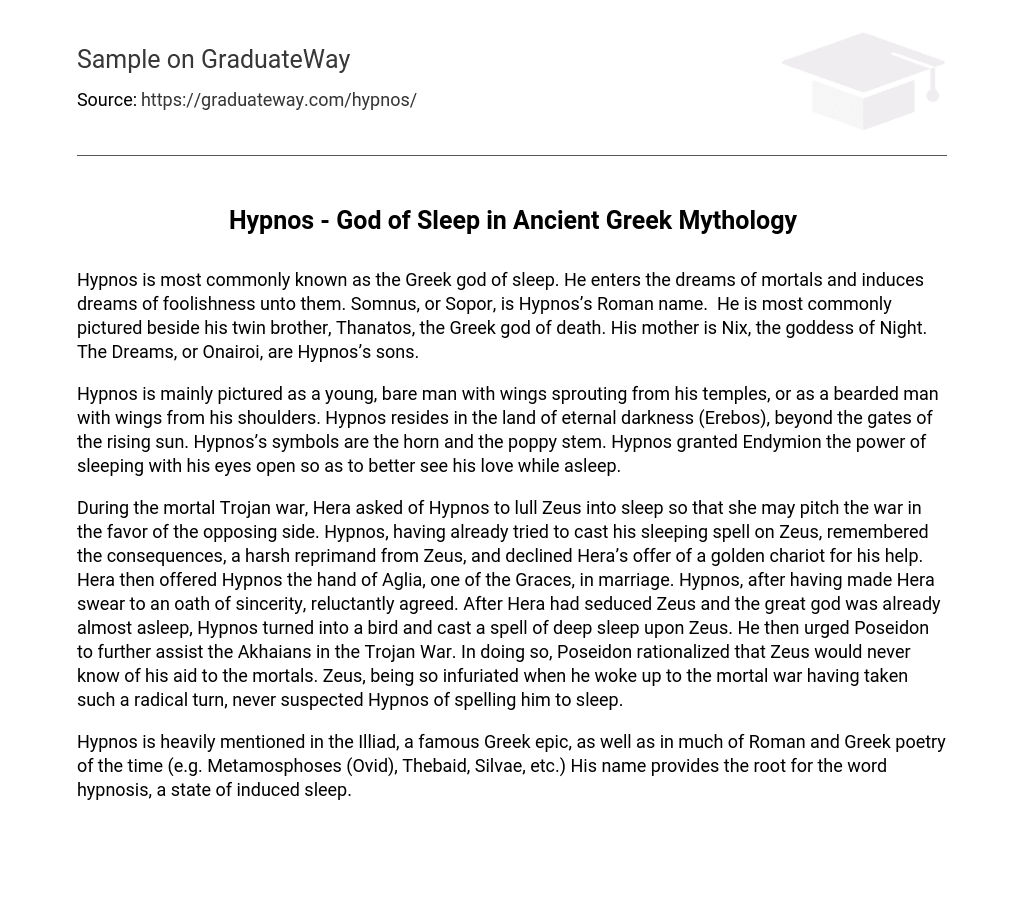Hypnos is most commonly known as the Greek god of sleep. He enters the dreams of mortals and induces dreams of foolishness unto them. Somnus, or Sopor, is Hypnos’s Roman name. He is most commonly pictured beside his twin brother, Thanatos, the Greek god of death. His mother is Nix, the goddess of Night. The Dreams, or Onairoi, are Hypnos’s sons.
Hypnos is mainly pictured as a young, bare man with wings sprouting from his temples, or as a bearded man with wings from his shoulders. Hypnos resides in the land of eternal darkness (Erebos), beyond the gates of the rising sun. Hypnos’s symbols are the horn and the poppy stem. Hypnos granted Endymion the power of sleeping with his eyes open so as to better see his love while asleep.
During the mortal Trojan war, Hera asked of Hypnos to lull Zeus into sleep so that she may pitch the war in the favor of the opposing side. Hypnos, having already tried to cast his sleeping spell on Zeus, remembered the consequences, a harsh reprimand from Zeus, and declined Hera’s offer of a golden chariot for his help. Hera then offered Hypnos the hand of Aglia, one of the Graces, in marriage. Hypnos, after having made Hera swear to an oath of sincerity, reluctantly agreed. After Hera had seduced Zeus and the great god was already almost asleep, Hypnos turned into a bird and cast a spell of deep sleep upon Zeus. He then urged Poseidon to further assist the Akhaians in the Trojan War. In doing so, Poseidon rationalized that Zeus would never know of his aid to the mortals. Zeus, being so infuriated when he woke up to the mortal war having taken such a radical turn, never suspected Hypnos of spelling him to sleep.
Hypnos is heavily mentioned in the Illiad, a famous Greek epic, as well as in much of Roman and Greek poetry of the time (e.g. Metamosphoses (Ovid), Thebaid, Silvae, etc.) His name provides the root for the word hypnosis, a state of induced sleep.





